SUMMARY
This is AI generated summarization, which may have errors. For context, always refer to the full article.
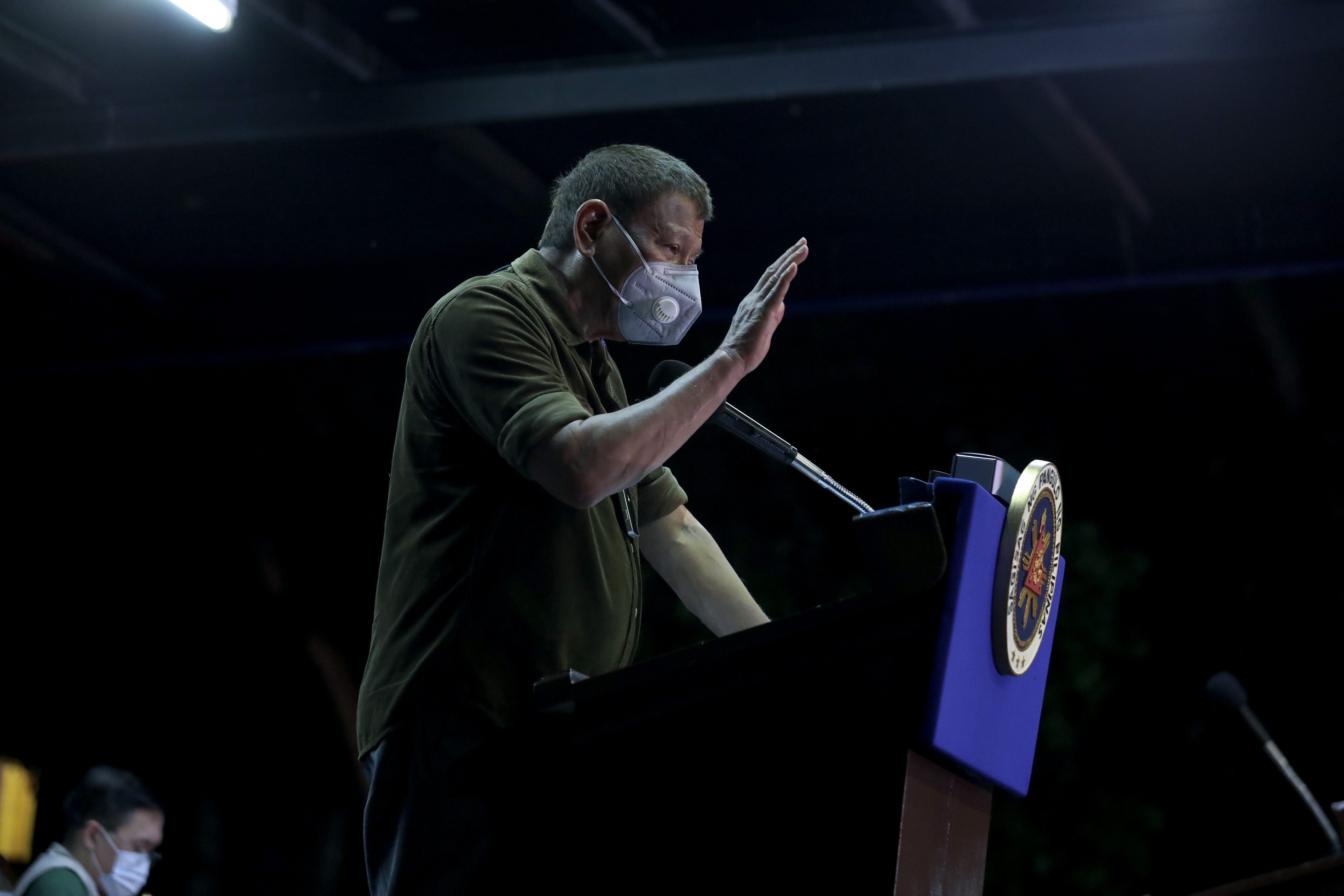
MANILA, Philippines (UPDATED) – In his latest public address aired past midnight on Wednesday, July 8, President Rodrigo Duterte mentioned how he unilaterally “declared” communist rebels as terrorists, even as he tried to reassure Filipinos that the government will not use the new anti-terrorism law arbitrarily.
Near the end of the hourlong broadcast on the coronavirus crisis, Duterte said the measure he signed into law last week provides the government “the much-needed legal weapons that we need to fight terrorism.”
“These leftists and these communists, they think that we are always thinking of them,” Duterte said. Leftist groups and the Communist Party of the Philippines (CPP) are among many quarters opposing the anti-terrorism law for its “draconian” provisions.
Duterte then described terror attacks “mostly in Mindanao,” including the bombing of a Catholic cathedral in Jolo, Sulu, in January 2019 by suicide attackers with links to the Islamic State and the Abu Sayyaf.
“They think that they are a different breed. They would like to be treated with another set of law[s], when as a matter of fact, they are terrorist,” Duterte said. It is unclear whether he was referring to communist rebels, leftists, extremists, or all of these.
“They are terrorist because we – I finally declared them to be one. Why? Because we – I spent most of my days as a president trying to figure out and connect with them on how we can arrive at a peaceful solution,” the President added.
‘It was good while it lasted’
Duterte began his term in 2016 on friendly terms with the CPP and other leftist organizations. His administration attempted peace negotiations with the CPP’s political arm, the National Democratic Front (NDF), but efforts bogged down in November 2017 after mutual accusations of ceasefire violations.
Duterte briefly entertained an offer to talk peace with the NDF in December 2019. The attempt fizzled out earlier this year with the opposition of the military and Duterte’s defense and security advisers, who found the CPP-NDF’s demands too tall.
“It was a good rapport while it lasted. Iyong na-presidente na ako, naiba na lang ang istorya (When I became president, the story changed) simply because in the ladder of priority, the highest for me would be the security of the state,” Duterte said in his speech.
“Pero noong panahon ng politika, well, boto iyan eh. Bilangan ng boto,” he added. (But when it was time for politics, well, those were votes. It was about counting votes.)
“You cultivate friendship with everybody, but there is always a time to be friendly and a time just to be firm. And I did my very best to produce something for the country. But unfortunately I would not be blaming anybody now unless they would start to blame me again so that I can also blame them. Eh wala talagang nangyari (But nothing really happened),” Duterte said.
As attempts at negotiations foundered, Duterte and CPP-NDF leader Jose Maria “Joma” Sison traded accusations of infidelity to the peace process. Sison accused Duterte of letting the military continue attacks on the New People’s Army (NPA) and later on, of violating democratic principles. Duterte accused Sison of allowing his guerrillas to attack government troops and pillage communities. He said Sison was out of touch with the NPA, fighting a lost cause.
In many of his public speeches on the pandemic, Duterte railed against the NPA for supposedly trying to sabotage the government’s response. He threatened to declare martial law if they did not stop.
The government has a pending court petition to proscribe the CPP-NPA-NDF as a terrorist organization, but the military already refers to it as a “communist terrorist group” in its press releases.
Tightening the noose
Duterte’s administration has since tightened the noose on the CPP-NPA-NDF and other groups it associates with the communist rebellion. In December 2018, Duterte established the National Task Force to End Local Communist Armed Conflict (NTF-ELCAC), which puts his anti-communist campaign on the agenda of various government agencies besides the police and military.
The NTF-ELCAC enlists local governments to dismantle communist guerrilla fronts with offers of amnesty and financial aid, as armed offensives by government forces continue.
The NTF-ELCAC also forms part of the government’s task force on “strategic communications” on its response to the pandemic. NTF-ELCAC spokesperson Major General Antonio Parlade Jr said this is to counter communist propaganda that takes advantage of “any lapse” in the government’s actions.
Duterte and his administration have struggled to appear on top of the situation despite the continuing rise in local COVID-19 cases and socioeconomic problems affecting poor Filipinos. Police have arrested several people over public protests or even social media posts criticizing the government’s handling of the pandemic.
Thousands of Filipinos have taken to the streets and to social media to protest Republic Act No. 11479 or the Anti-Terrorism Act of 2020. So far, 6 petitions have been filed, urging the Supreme Court to strike the measure as unconstitutional.
The new law, signed by Duterte on July 3, broadens law enforcement and military powers in surveilling, detaining, and prosecuting terror suspects. It authorizes the Cabinet-led Anti-Terrorism Council to issue preliminary designations of persons or groups as terrorists, ahead of official court proscription. It punishes actions and speech that may be interpreted as supportive of terrorism. (READ: EXPLAINER: Comparing dangers in old law and anti-terror bill)
Those who oppose the measure worry the government may use it to persecute critics and dissenters, as protest rallies and critical speech may be interpreted as a threat to public safety, and therefore an act of terrorism.
Duterte: Fear not
The President, after saying communist rebels are terrorists because he declared them so, told Filipinos not to fear the anti-terrorism law.
“And for the law-abiding citizen of this country, I am addressing you with all sincerity: Huwag ho kayong matakot kung hindi ka terorista. Kung hindi ka naman sisirain mo ang gobyerno, pasabugin mo ang simbahan, pasabugin mo iyong public utilities, pasabugin mo iyong – Well, just to derail para matumba na tuloy ang bayan,” Duterte said.
(Don’t be afraid if you are not a terrorist. If you’re not out to destroy the government, bomb a church, blow up public utilities, blow up the – Well, just to derail so that the nation stumbles.) – Rappler.com
Add a comment
How does this make you feel?
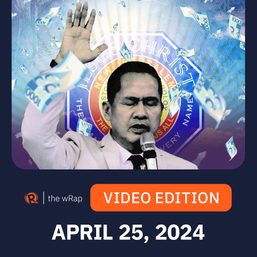

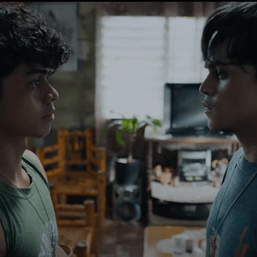
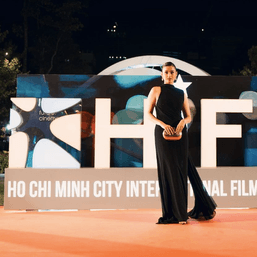
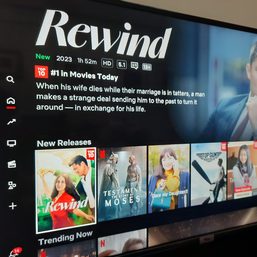
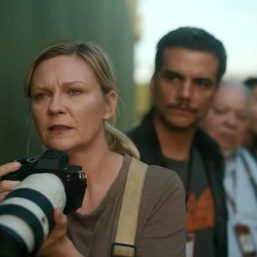
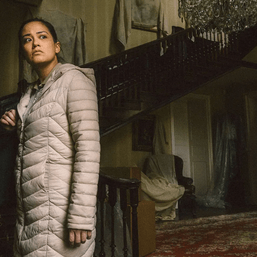
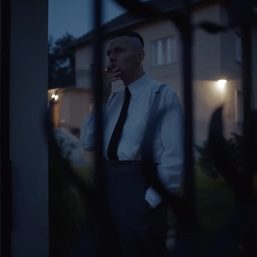
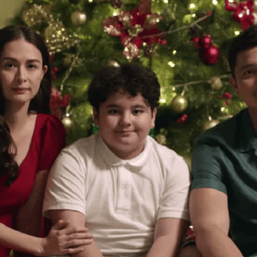
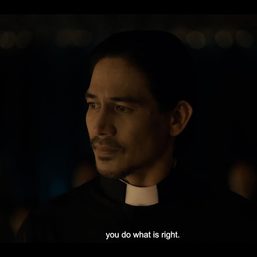
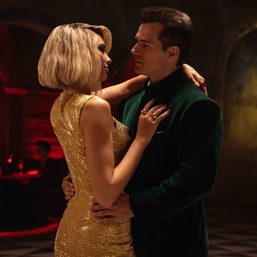
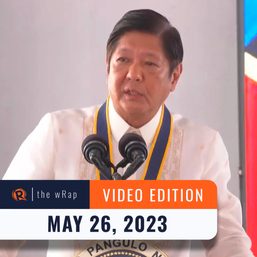

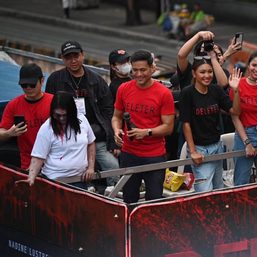
There are no comments yet. Add your comment to start the conversation.